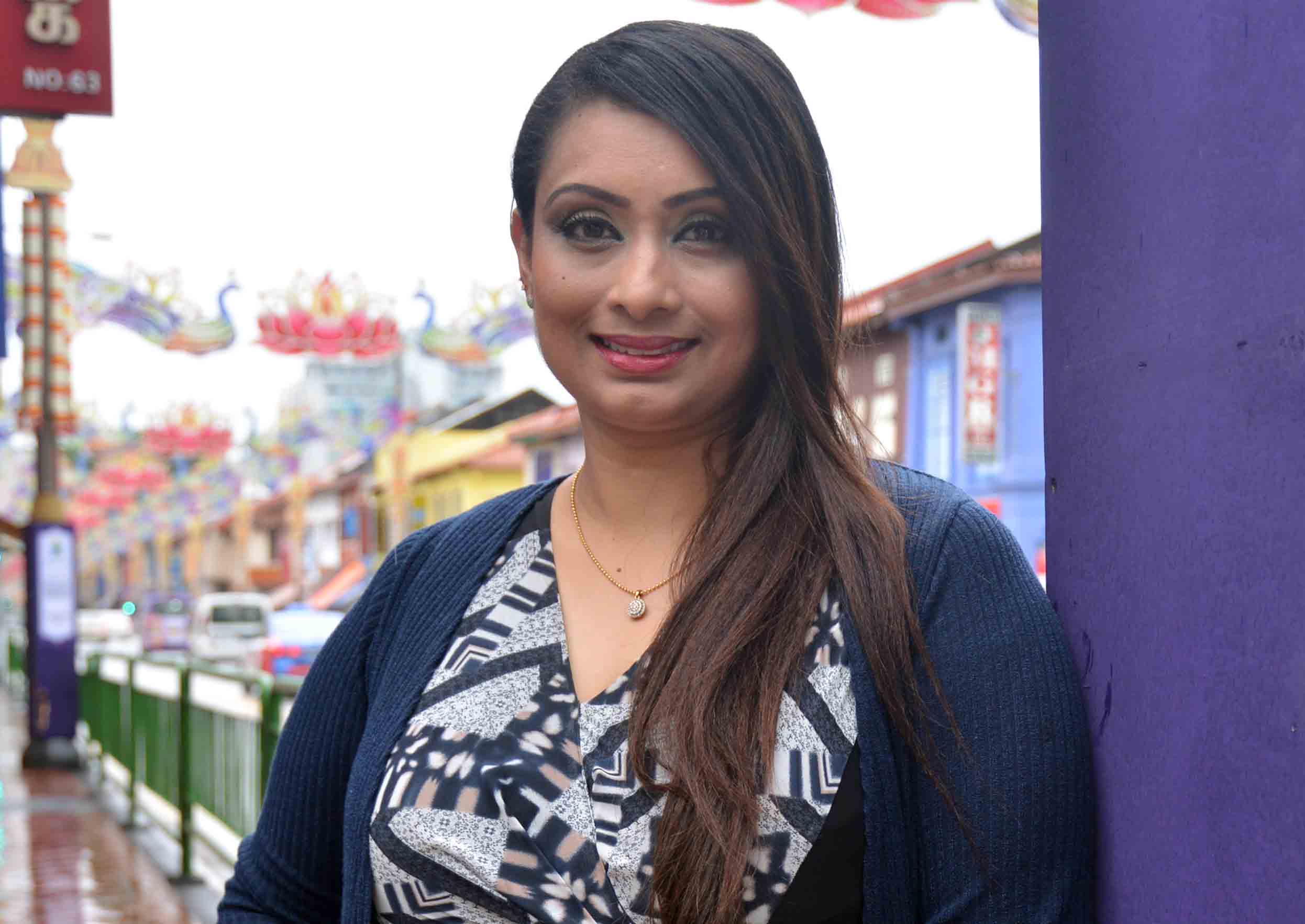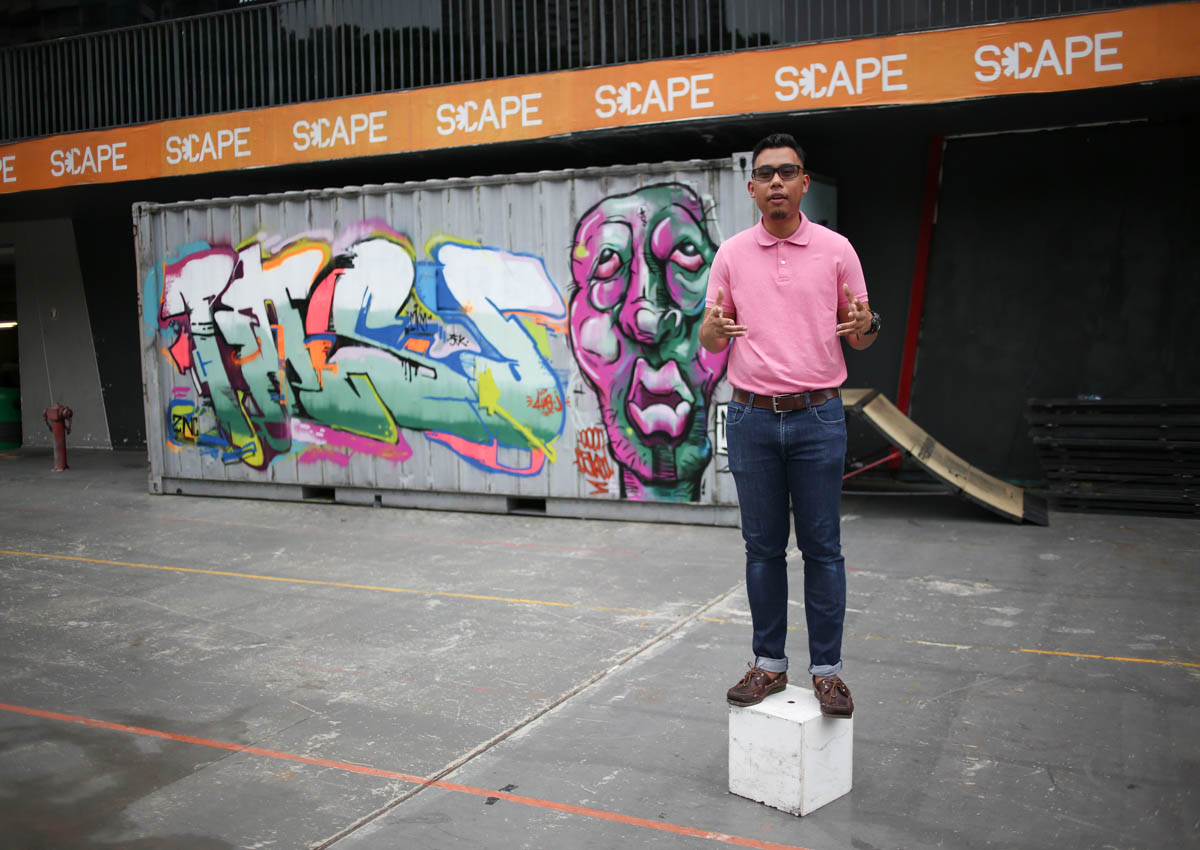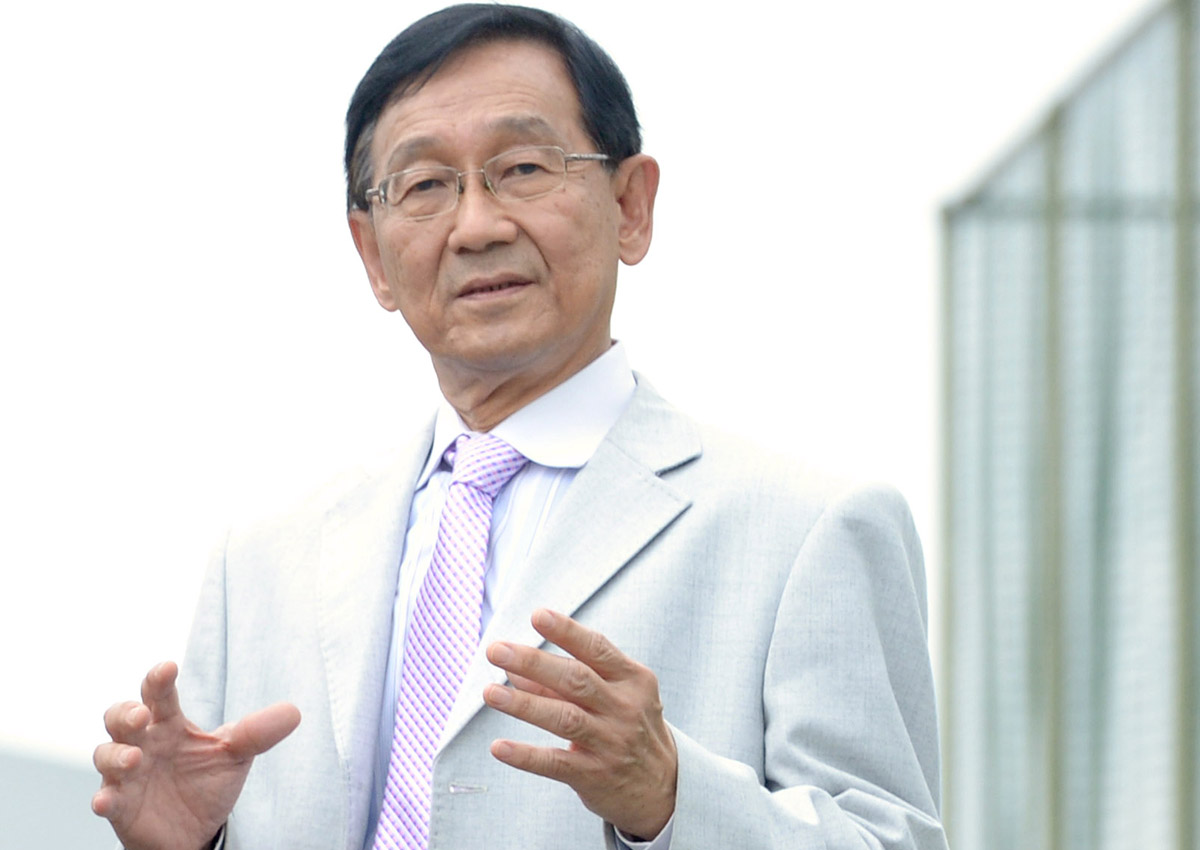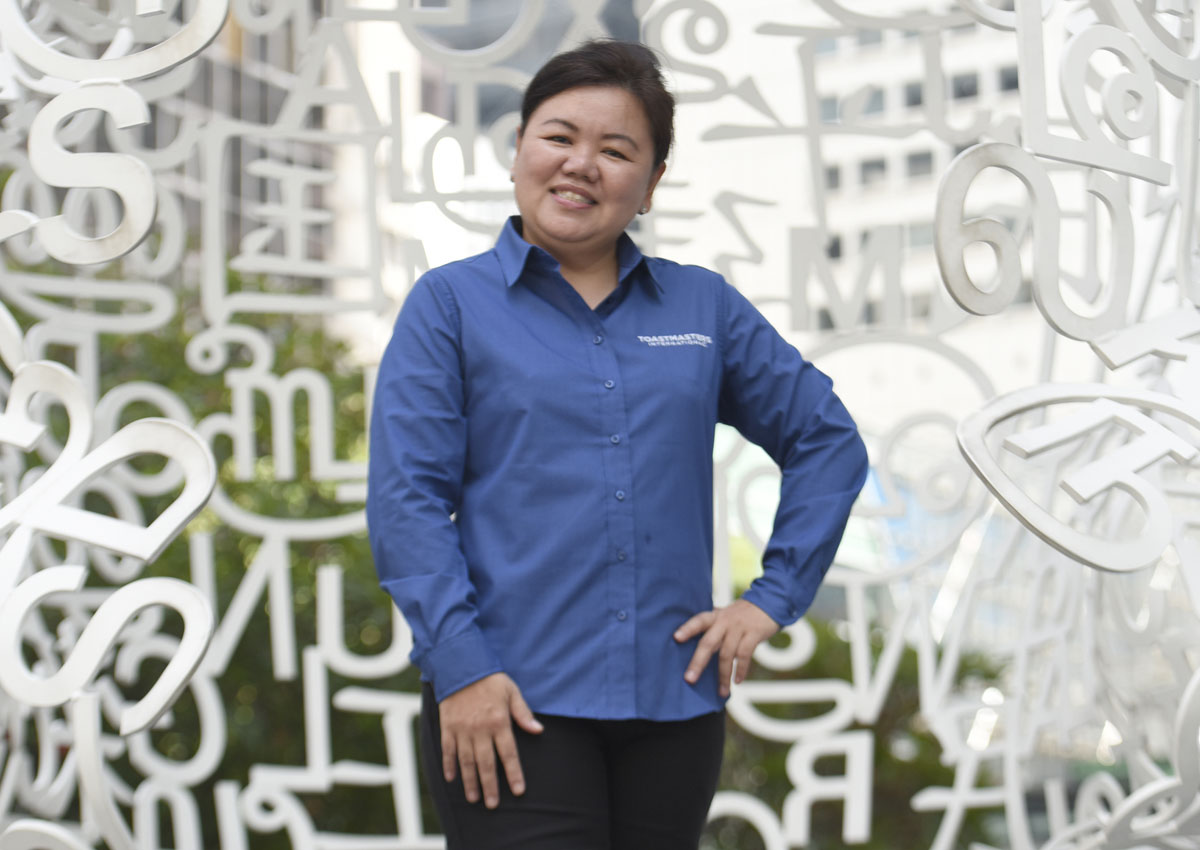With a pair of white Calvin Klein underwear pulled over his trousers, lawyer Darren Tay delivered his speech at the World Championship of Public Speaking in Washington DC last month.
The briefs were used to illustrate a funny anecdote from his childhood: A bully made him walk around in school with his underwear worn over his pants.
It turns out he had the last laugh. He made history as the first Singaporean and South-east Asian to be crowned champion at the competition.
Mr Tay, 27, is a Toastmaster. That is, he is part of a global club comprising members who gather regularly to, well, talk.
They do not engage in idle chit chat, but present themselves in a structured, rhetorical way to an audience. In other words, they do what many people have nightmares about: public speaking.
Membership fees depend on the specific club, but in Singapore, it is usually about $150 a year.
During a meeting, there are three main segments: the prepared speeches that members book a slot for beforehand; table topics or impromptu speeches; and evaluation speeches, where fellow members go on stage to give their assessment of the prepared speeches.
Each member gets a basic manual that comes with a list of “projects” or speeches for him to complete, each time applying a skill, such as content organisation or vocal variety. As members progress, they can buy advanced manuals.
Founded in the United States in 1924, the Toastmasters programme has gone on to garner devotees all over the world. There are more than 345,000 members who are part of the 15,900 Toastmasters clubs in 142 countries.
In Singapore, the first Toastmasters club started in 1967. There are now 226 clubs with more than 6,000 members. This is an impressive tally compared with larger countries such as Japan, which has 172 clubs.
Countries are separated into districts as part of the Toastmasters network. Because Singapore has so many members, this little red dot counts for one district – District 80, to be exact.
Although Toastmasters clubs are not well known in the mainstream, members are often devoted and frequently speak of their experiences very highly. The main gain, they say, is that the club has made them more effective communicators.
Other than that, many say they gained confidence, improved their language skills and made more friends.
Toastmasters world champion Mr Tay, who is a member of the Punggol Park CC Toastmasters Club, used to be a shy teenager who loathed public speaking.
Through Toastmasters, he has learnt that public speaking is like a sport.
“Public speaking is something you can’t learn by watching videos on YouTube or reading about.
“You have to keep practising and Toastmasters gives you the stage to do so,” he says.
Personal grooming trainer Patricia Lum, 62,who is the district director for Singapore, says Toastmasters clubs are not just for articulate, established speakers.
There are clubs that cater to different levels of speakers and members can come from all walks of life, not just white-collared professionals.
Slightly more than half of the clubs here are based in community clubs, while nearly a quarter are started by corporate organisations such as DBS Bank, technology giant IBM and insurance group AIA.
The remaining clubs are split among educational institutions including Ngee Ann Polytechnic and the National University of Singapore, and private associations such as YMCA.
English is not the only language in which meetings are conducted.A quarter of the clubs are Mandarin, Tamil, Malay or bilingual. There is even a French Toastmasters club.
Depending on the number of members in a club, which can range from 10 to more than 100, meetings can be held once a month or weekly.
Likewise, annual membership fees vary from club to club. Typically, the fees for a community club-based one starts at about $150 a year.
Business planner Allison Ching, who is president of the Toastmasters Club of Singapore, which is one of the largest in Singapore with more than 130 members, says: “Members are free to take their time to complete their projects or speak whenever they want to. So it’s purely up to them how fast they wish to progress.”The club holds its meetings at Sheraton Towers Singapore in Scotts Road.
Members can also club-hop and test their public speaking skills in front of different sets of audiences.
Meanwhile, Ms Lum, who is in the same club as Mr Tay, says she always knew it was “a matter of time” before the orator would nab the title he won.
“Like Olympic champion Joseph Schooling, he has put Singapore on the world map – for public speaking,” she says.
Delivering 80 speeches in four years

Judging by her confident demeanour, it is hard to imagine that five years ago, Ms Joyce Kingsly endured sleepless nights preparing for a seven-minute speech.
The 42-year-old businesswoman now takes the floor regularly for her job.
She owns an etiquette and image consultancy called Creating ‘A’ Class Corporates, conducting courses in dining etiquette, personal grooming and communication. She also runs an import and wholesale meat distribution company.
Five years ago, it was a different story.
She tossed and turned in bed for two nights before having to deliver her debut Tamil speech at a Little India Shopkeepers and Heritage Association (Lisha) Tamil Toastmasters Club meeting. It was her first speech and so was a selfintroduction.
Her nerves were shot because she had always been terrified of public speaking.
Ignoring her pounding heart and shaking hands, she went on stage, delivered her speech – and was awarded best speaker.
“I couldn’t believe it,” says the mother of two daughters aged 21 and 17. Her husband works as an engineer.
“I didn’t sleep for another two nights after that as I was in disbelief.”
She joined the Toastmasters club in 2011 at the encouragement of Mr Harikrishnan Muthusamy, a key driving force in the formation of the 14 Tamil Toastmasters clubs in Singapore.
At that time, she had been taking on more leadership roles, including joining various grassroots groups, and felt that joining a Toastmasters club would “be good for her personal development”.
She found the course structured and effective. “Each chapter in the Toastmasters manual concentrates on an aspect of public speaking and refines you in some way, whether it is planning your speech or eye contact.
“As you progress, you get feedback from evaluations and become a more all-rounded speaker,” she says.
Shortly after joining the Tamil language club, she founded the Lisha women’s wing a year later.
So far, she has delivered 80 speeches – five in Tamil – in the last four years.
As a result of the practice, her verbal Tamil has improved significantly, she says.
This helps her in her work and regular community engagements with Lisha, as she has to speak in Tamil about a third of the time.
She says: “All of this would not have been possible without Toastmasters.”
Coming out of his shell to help with youth

A self-professed introvert, Mr Saiful Reduwan did not have the confidence to speak in front of crowds.
His solution was to learn from established speakers.
As a teenager, he used to flip through the newspaper in search of free seminars to attend.
It did not matter what the topic was, he just wanted to observe the speakers and study how they expressed themselves. He would complement his seminar attendance by watching videos of American motivational speaker Tony Robbins online.
Yet, he realised it was not enough to just watch. He still could not articulate his thoughts effectively.
Over the years, a growing desire to help the youth in the Malay-Muslim community compelled him to take action.
“I want to inspire the youth in my community to aim higher, but I wasn’t able to reach out to them because of my poor communication skills,” he says.
His dream was to set up a youth academy, a space for him to guide young people in whatever activity they hoped to pursue, be it sports or the arts. To do that, he had to first come out of his shell.
At 32 now, he is an allied educator, which means he provides teaching and learning support in a secondary school.
Two years ago, he joined the sole Malay-English Toastmasters club, Jauhari Bilingual Toastmasters Club at Cairnhill Community Club.
“If I was going to help the community, I figured it was better for me to join a club that allowed Malay speeches too,” he says.
So far, he has delivered two speeches in Malay and seven in English.
“The members are very encouraging and they give me tips,” he says, adding that the benefit of a small club is that the members all know one another. The club has 18 members and Mr Saiful is the youngest.
His confidence has soared since joining the club and he is keen to share his skills and insights.
He volunteers as a youth coach at social enterprise The Green Apple Project, which offers youth empowerment programmes such as mastering communication skills.
He is also helping a group of teenage hip-hop dancers market themselves and showcase their skills.
“Now that I’m more confident speaking up and conducting workshops, I am teaching youth how they need to communicate better to be heard.”
Founder of world’s first mandarin club

If Singapore has a godfather of the public speaking scene, he could well be Mr Ernest Chen, 73.
He has been instrumental in spreading the growth of the Toastmasters club scene in Singapore and is a veteran public speaking coach.
He first joined the Toastmasters Club of Singapore in 1983 to learn to speak more confidently on public occasions.
He found the experience so worthwhile that he went on to start 15 other Toastmasters clubs in Singapore in the following three decades, including the world’s first Mandarin club, Thomson C.C. Mandarin Toastmasters Club, in 1991.
When he joined Toastmasters, there were only three clubs in Singapore. Now there are 226.
He used to run an event management company and a stationery business that he inherited from his father. He subsequently switched careers and, from 1990, started coaching people in public speaking.
He has taught more than 3,000 people and regularly conducts workshops in not only verbal communication, but also speech writing and business brokerage.
He has written three books – two in English and one in Chinese – on public speaking too.
In 1993, he was awarded Distinguished Toastmaster, the highest award a member can attain.
Looking back on how far he has come, he said he had just wanted to “reach out to as many people as possible”.
He adds: “To do so, I learnt that you must speak correctly and effectively.”
The bilingual speaker, who is married with three children, decided to start a Mandarin Toastmasters club as he noticed that there were many Chinese Singaporeans who preferred to speak in their mother tongue.
To get as many members as possible, he decided to start the club at a community club.
The first one he founded was the Thomson Toastmasters Club at Thomson Community Club in 1988 and that created a ripple effect.
“Other community clubs started contacting me and now, there are so many of them,” he says.
Looking back, he says he has no regrets.
“I now do what I love and that is to influence others through how I speak and help them effectively speak well too,” he says. “I’m a Toastmaster for life.”
Finding friends and her mother tongue

Speaking to suppliers in China used to drive Ms Cassandra Ang, 50, up the wall.
For the past 12 years, she has been helping her husband in his trading business and often needs to speak to suppliers in China, where they source for goods.
While her conversational Mandarin is solid now, it was not the case a decade ago. Because she spoke mostly English, her command of her mother tongue weakened over the years.
She remembers having difficulty speaking to Chinese suppliers over the telephone. “At times, I’d have no idea what they were saying,” she says.
Due to miscommunication, she once accidentally ordered 1,000 handbags with no straps when she had wanted long-strapped ones.
As her poor Mandarin was costing her time and money, she decided to fix the problem and brush up on the language.
In 2004, she heard about Toastmasters clubs from a friend and joined a Mandarin-speaking one – Bukit Batok CC Mandarin Toastmasters Club – near her home.
She took quickly to the course and was so active that she decided to take up leadership positions at the club.
After becoming treasurer, she worked her way up to being president. Each position can be held for only a year.
She did not stop there. She volunteered to be part of a division committee before graduating to district level, the top rung within each country’s Toastmasters scene.
She subsequently joined another club, Chua Chu Kang CC Mandarin Toastmasters Club, in 2009 and was appointed president three years later.
In total, she has taken on 16 positions.
“I enjoy being a leader and Toastmasters is a good place to take on different roles,” she says.
Ms Ang, who has two daughters aged 20 and 17, is also attracted to the social aspect of Toastmasters clubs.
The clubs tend to attract middle-aged people, particularly those above 50, for whom “Toastmasters is a place where they can make friends too”, she says.
She organises quarterly bonding activities, such as karaoke sessions and day trips to Malaysia, for members to get together outside the Toastmasters setting.
“We are a close-knit family,” she says.
Besides having a steady group of friends, her Mandarin woes are over too.
In fact, she even received a great compliment from her Chinese supplier. “After two years in Toastmasters, the supplier asked me how I could speak such good Mandarin now,” she says.

This article was first published on September 25, 2016.
Get a copy of The Straits Times or go to straitstimes.com for more stories.





